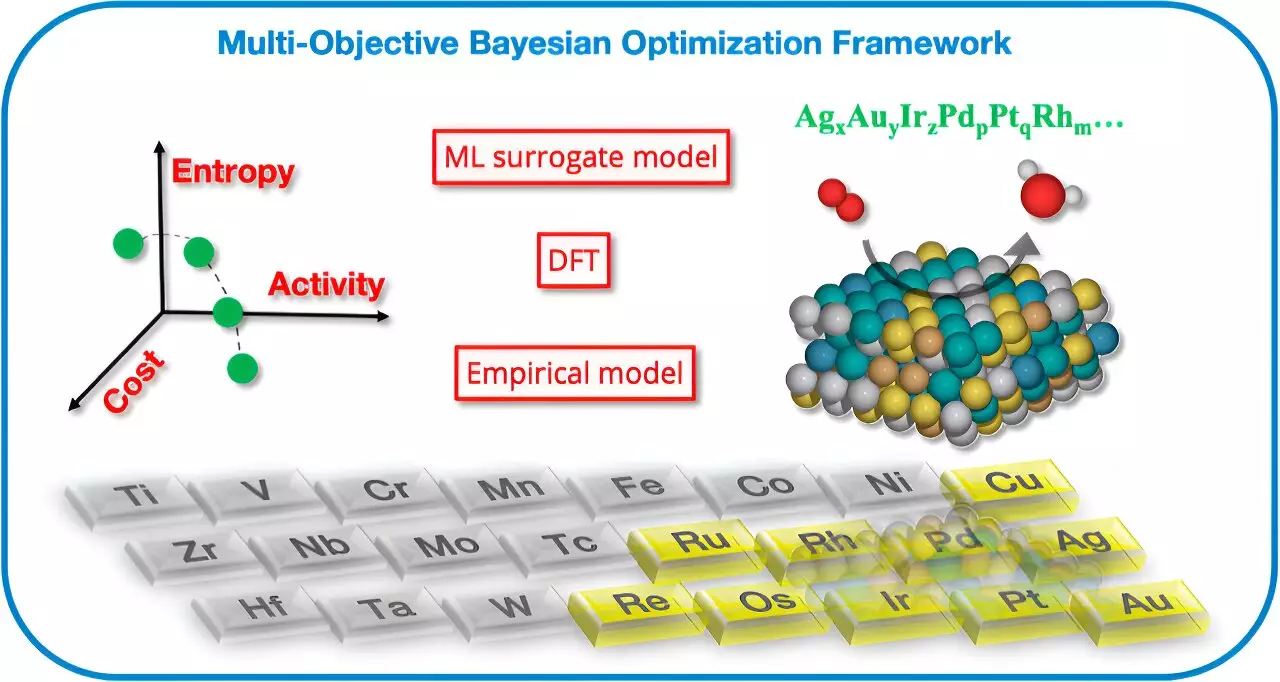Prof Dr. Johannes Margraf and his team of scientists have made significant progress in the field of electrocatalysis by developing a cutting-edge method to enhance the efficiency of electrocatalysts. Their research, which was recently published in the prestigious Journal of the American Chemical Society, focuses on the use of high entropy alloys (HEAs) as promising materials for electrocatalytic applications.
Electrocatalysis plays a crucial role in accelerating chemical reactions in batteries and fuel cells. Unlike traditional metal catalysts, HEAs are composed of multiple elements, resulting in a complex structure that offers the potential for improved catalytic properties. However, determining the optimal combination of elements for specific applications has been a significant challenge for researchers in the past.
Dr. Margraf and his team have developed an innovative algorithm that leverages simulations and artificial intelligence to enhance multiple properties of electrocatalysts simultaneously. While previous studies have primarily focused on improving catalytic activity, this new approach takes into account factors such as cost and stability as well. By using this algorithm, the researchers were able to predict a wide range of new HEAs that offer different trade-offs between these properties.
The application of this groundbreaking algorithm in oxygen reduction reactions in fuel cells has shown promising results. By identifying catalysts with comparable activity to platinum but at a significantly lower cost, the researchers have paved the way for more cost-effective alternatives in fuel cell technology. Additionally, they have discovered catalysts that exhibit even higher activity levels than platinum, further expanding the possibilities for future research in this field.
While the theoretical predictions made by Dr. Margraf and his team are certainly groundbreaking, further validation through practical experiments is essential to confirm the effectiveness of these new catalysts. By combining theoretical insights with experimental data, researchers can unlock the full potential of high entropy alloys in electrocatalysis and drive innovation in the development of next-generation energy storage technologies.


Leave a Reply